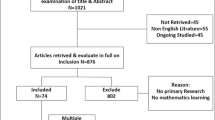Abstract
The past three decades saw considerable progress in access to information for the group of blind and visually impaired people: Thanks to modern information technology in the mainstream and to very specialized adaptive and assistive technologies, blind and visually impaired people are now able to deal independently and efficiently with almost every piece of information that is composed of pure text. Despite current strong trends towards graphical presentation, text still covers the majority of relevant contents for private and professional life, such that information access for the target group is currently accomplished to a very large extent. Despite intensive research efforts carried out over the last years, blind and visually impaired people are still excluded from an efficient usage and handling of graphical contents. Since Mathematics is presented in a highly graphical way most of the time, this exclusion implies considerable restrictions in access to Mathematics, too. Although “accessibility” is put in place, “usability” and especially support functionalities in “doing” mathematics are very low. This paper analyses the major issues, outlines the existing approaches to a possible solution and describes the current activities at the Johannes Kepler University in Linz, institute “integriert studieren” (Austria) towards a comprehensive software answer to this problem.
Access this chapter
Tax calculation will be finalised at checkout
Purchases are for personal use only
Preview
Unable to display preview. Download preview PDF.
Similar content being viewed by others
References
Batušić, M., Miesenberger, K., Stöger, B.: LABRADOOR, a contribution to making mathematics accessible for the blind. In: Edwards, A.D.N., Arato, A., Zagler, W.L. (eds.) Computers and Assistive Technology - 6th International Conference on Computers Helping People with Special Needs, ICCHP Ý 1998, Oldenbourg, Wien, München (1998)
Miesenberger, K., Batušić, M., Stöger, B.: Parser for the Marburg Mathematical Braille Notation. In: Stephanidis, C. (ed.) Universal Access in HCI – Inclusive Design in the Information Society, Lea, Mahwah, vol. 4 (2003)
Karshmer, A.I., Bledsoe, C.: Access to mathematics by blind students. In: Miesenberger, K., Klaus, J., Zagler, W.L. (eds.) ICCHP 2002. LNCS, vol. 2398, p. 471. Springer, Heidelberg (2002)
Karshmer, A., Gupta, G., Miesenberger, K., Pontelli, E., Guo, H.: The Development of a Tool to enhance communications between blind and sighted mathematicians, students, and teachers: A Global Translation Appliance. In: Stephanidis, C. (ed.) Universal Access In HCI - Towards and Information Society for All, Lawrence Erlbaum, London (2001)
Guo, H., Karshmer, A., Weaver, C., Mendez, J., Geiger, S.: Computer Processing of Nemeth Braile Math Code. In: Vollmar, R., Wagner, R. (eds.) Computers Helping People with Special Needs, ICCHP Ý 2000, Oldenbourg, Wien, München (2000)
Burger, F., Batušić, M., Miesenberger, K., Stöger, B.: Access to Mathematics for the Blind - Defining HrTEX Standard. In: Proceedings of the 5th International Conference on Computers Helpling People with Special Needs, ICCHP 1996, Linz, Austria, July 1996, pp. 609–616. Oldenbourg Wien München (1996)
Project Universal Math Access, http://karshmer.lklnd.usf.edu/
Author information
Authors and Affiliations
Editor information
Editors and Affiliations
Rights and permissions
Copyright information
© 2004 Springer-Verlag Berlin Heidelberg
About this paper
Cite this paper
Stöger, B., Miesenberger, K., Batušić, M. (2004). Mathematical Working Environment for the Blind Motivation and Basic Ideas. In: Miesenberger, K., Klaus, J., Zagler, W.L., Burger, D. (eds) Computers Helping People with Special Needs. ICCHP 2004. Lecture Notes in Computer Science, vol 3118. Springer, Berlin, Heidelberg. https://doi.org/10.1007/978-3-540-27817-7_98
Download citation
DOI: https://doi.org/10.1007/978-3-540-27817-7_98
Publisher Name: Springer, Berlin, Heidelberg
Print ISBN: 978-3-540-22334-4
Online ISBN: 978-3-540-27817-7
eBook Packages: Springer Book Archive




